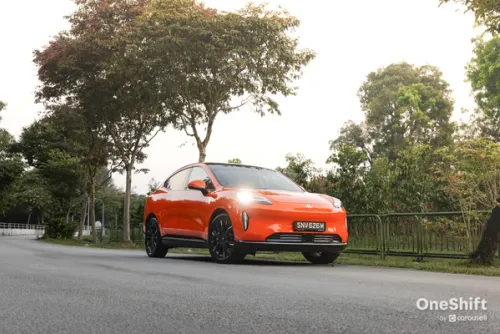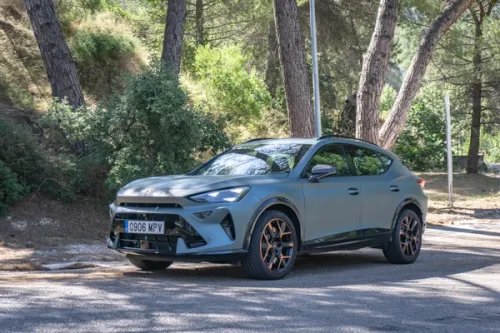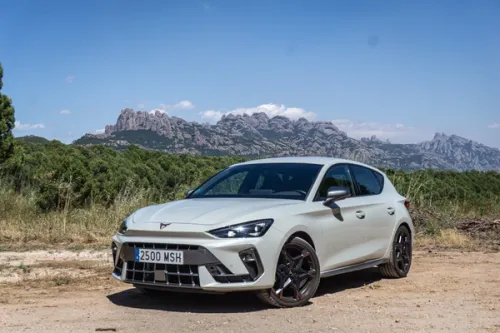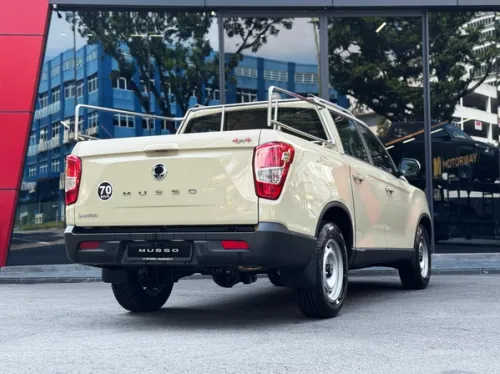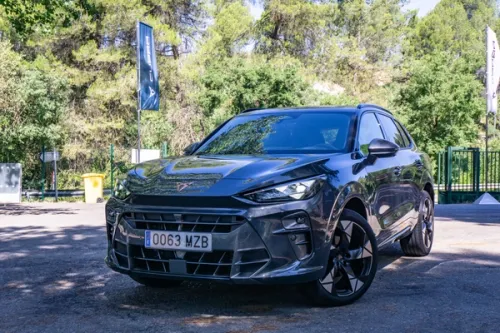Volvo Car Group reveals world-first Cyclist Detection with full auto brake in Geneva
Volvo Car Group reveals world-first Cyclist Detection with full auto brake in Geneva The new functionality is an enhancement of the present detection and auto brake technology, and the package will be called Pedestrian and Cyclist Detection with full auto brake. All cars equipped with pedestrian detection will also incorporate cyclist detection. "As the leader in automotive safety, we have been first in the industry with all detection and auto brake technologies, from the first-generation brake support in 2006 to pedestrian detection with full auto brake in 2010," said Doug Speck. Counteracts accidents According to accident data, about 50 per cent of all cyclists killed in European traffic have collided with a car - a number that is counteracted by Volvo Cars' new Pedestrian and Cyclist Detection technology. New advanced software, including more rapid vision processing, has made it possible to extend the present detection and auto brake technology to cover also certain cyclist situations.


A cyclist in the same lane swerving out in front of the car is one incident type that is addressed by the Pedestrian and Cyclist Detection with full auto brake, which will be available in the Volvo V40, S60, V60, XC60, V70, XC70 and S80 models from mid-May in 2013.
The advanced sensor system scans the area ahead. If a cyclist heading in the same direction as the car suddenly swerves out in front of the car as it approaches from behind and a collision is imminent, there is an instant warning and full braking power is applied.
The car's speed has considerable importance for the outcome of an accident. A lower speed of impact means that the risk of serious injury is significantly reduced.
Pedestrian and Cyclist Detection with full auto brake consists of a radar unit integrated into the car's grille, a camera fitted in front of the interior rear-view mirror and a central control unit. The radar's task is to detect objects in front of the car and to determine the distance to them. The camera determines the type of the objects. Thanks to the dual-mode radar's wide field of vision, pedestrians and cyclists can be detected early on. The high-resolution camera makes it possible to spot the moving pattern of pedestrians and cyclists. The central control unit continuously monitors and evaluates the traffic situation.
The auto brake system requires both the radar and the camera to confirm the object. With the advanced sensor technology, it is then possible to apply full braking power immediately when necessary. The technology also covers vehicles driving in the same lane.
At the company's press conference in Geneva, Volvo Cars also presented the new model range, which includes new versions of the Volvo S60, V60, XC60, V70, XC70, S80 and the Volvo V60 Plug-in Hybrid.
"This is the most extensive development of existing models in our company's history. Each of the enhancements is designed around our customers' needs. We have focused on quality and attention to detail in order to give these models a major boost and sharpen their competitiveness," said Doug Speck.
It was also announced in Geneva that the successful new Volvo V40 is now available in a manual D2 version (115 hp) with CO2 emissions down to 88 g/km, which translates into fuel consumption of 3.4 l/100 km.
"By cutting the CO2 emission figure by a further six grams per kilometre, we once again demonstrate our leading position within fuel efficiency improvements," said Doug Speck.
View the video below to see how it works.
Related Articles:
- Volvo makes driving at night safer and more comfortable with renowned active high beam control
- Volvo s60 Polestar
Credits:


Get the Best Price for your used car
from 500+ dealers in 24 hours

- Convenient and Hassle-Free
- Consumer Protection
Transparent Process
With No Obligation

